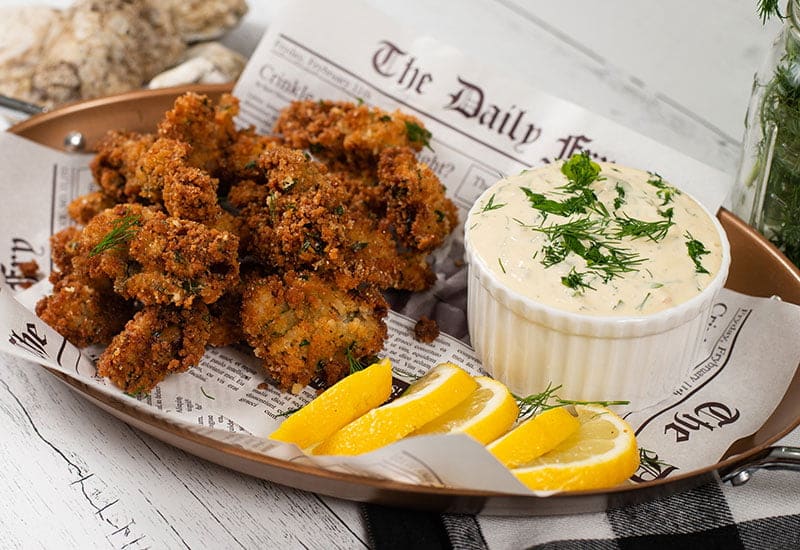If you enjoy seafood, you will agree that there is something undeniably satisfying about indulging in the crispiness and juiciness of Southern Fried Oysters. This classic coastal delicacy brings a taste of the ocean to your plate, featuring plump oysters coated in a golden, crunchy crust. Whether served as an appetizer, part of a seafood feast, or a main course, these crispy delights will impress and leave you craving more.
This article takes you on a culinary journey to create the perfect Homemade Crispy Southern Fried Oysters. With a few simple steps and the right ingredients, you can master this beloved dish in the comfort of your kitchen.
So, let’s dive into the world of delectable seafood flavors and discover how to make these mouthwatering gems.
Savor the Sea
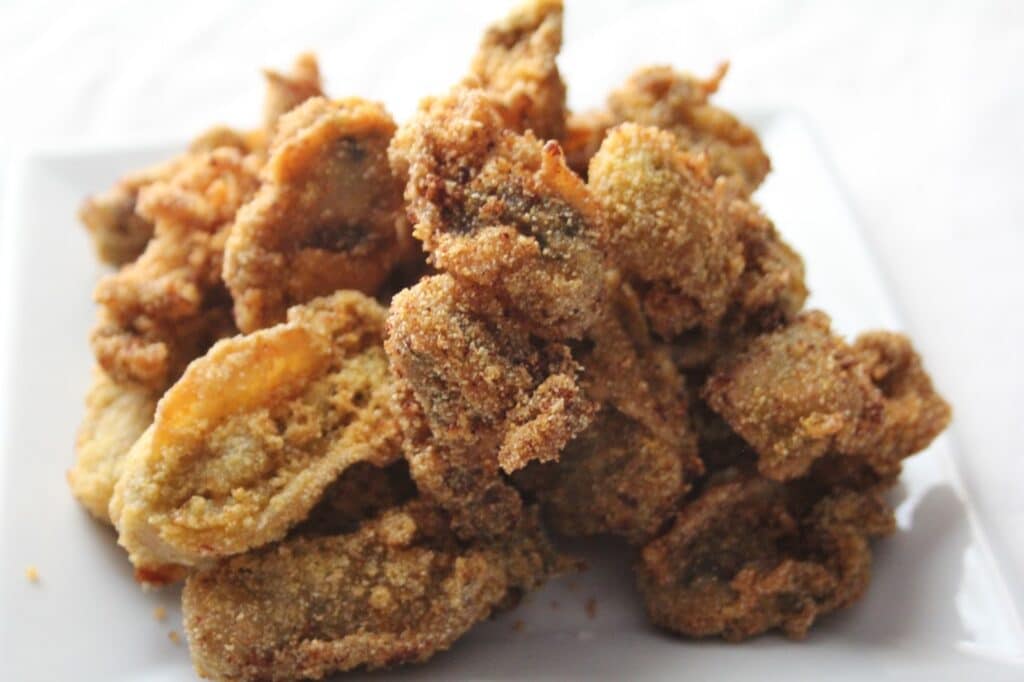
Indulge in the flavors of the coast with our Southern crispy fried oysters recipe. This amazing culinary journey brings the taste of the ocean to your plate and palate. Featuring plump oysters coated in a golden, crunchy crust, this homemade dish is a delight. With a few simple steps and the right seasonings, you can create these mouthwatering gems in the comfort of your kitchen.
Our step-by-step guide will lead you through the marinating process, creating the perfectly seasoned coating and achieving that desired crispiness. Whether served as an appetizer, part of a seafood feast, or a main course, these homemade crispy fried oysters will impress and leave your taste buds craving more.
Things You Need for the Recipe
To create the mouthwatering Southern Crispy Fried Oysters, you’ll need key ingredients to produce the perfect combination of flavors and textures. These ingredients can be easily found in most grocery stores, seafood markets, or your home. Here are the things you need for this recipe:
Ingredients Required
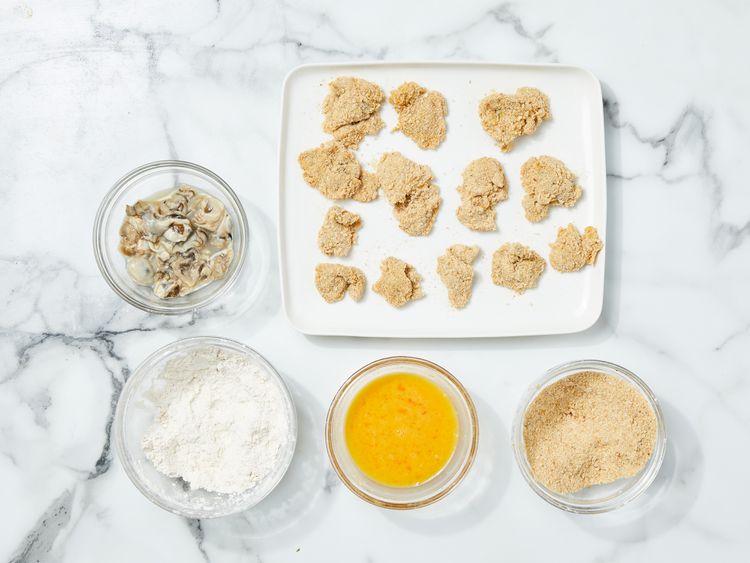
For the Oysters
Ingredients | Quantity |
Fresh Oysters | 24-30 |
Buttermilk | 1 cup |
Hot sauce | 1 tablespoon |
Salt and pepper | To taste |
For Coating & Frying
Ingredients | quantity |
1 cup | |
1 teaspoon | |
½ teaspoon | |
½ teaspoon | |
¼ teaspoon (can be adjusted) | |
To taste | |
As needed |
Tools Required
To make Homemade Crispy Southern Fried Oysters, you’ll need a few essential kitchen tools and equipment to ensure a successful cooking process. These essential tools and equipment will make creating Southern Fried Oysters much smoother and more enjoyable. Remember to exercise caution when frying hot oil and follow proper safety measures in the kitchen. Here’s what you’ll need.
Tools | Purpose Served |
For marination | |
For combining ingredients | |
For setting the coating | |
For frying | |
Slotted spoons or tongs | For removing oysters from the skillet |
For measuring the exact temperature | |
For handling oysters | |
For removing excess oil |
1. Shallow Bowl or Dish
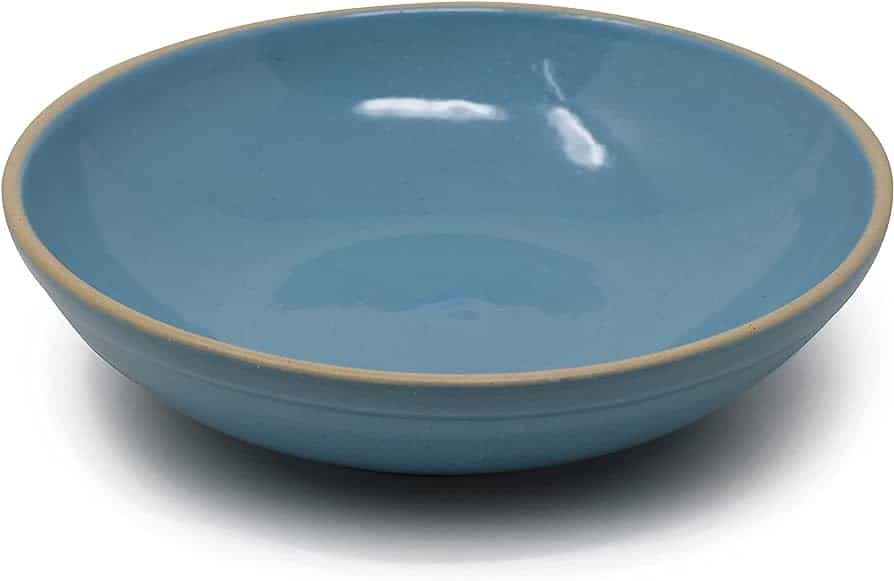
For marinating the oysters in the buttermilk mixture, you’ll need a shallow bowl or dish that is large enough to accommodate the oysters. A shallow bowl will ensure proper mixing and coating of the oysters to be fried.
2. Mixing Bowls
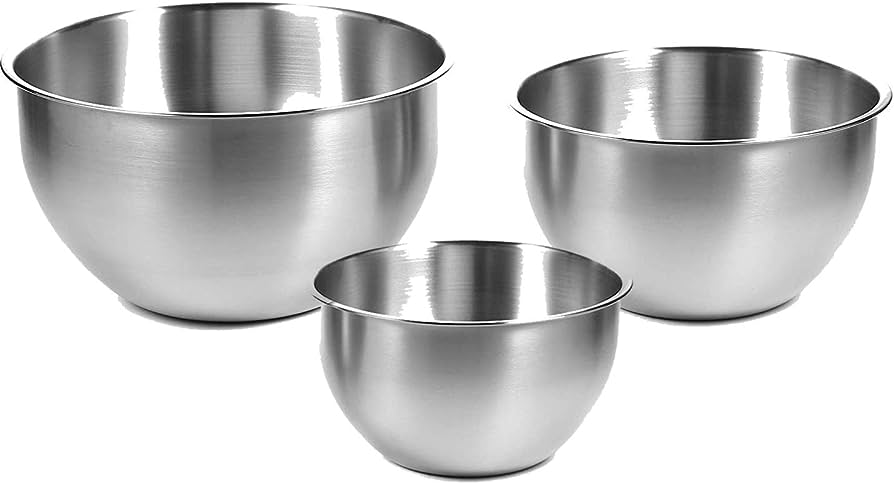
Since some dry ingredients will be part of the coating, have a few mixing bowls on hand for combining the dry ingredients to create the coating mixture. It will not only make the process smoother but will also ensure organization during the cooking process.
3. Baking Sheet or Tray
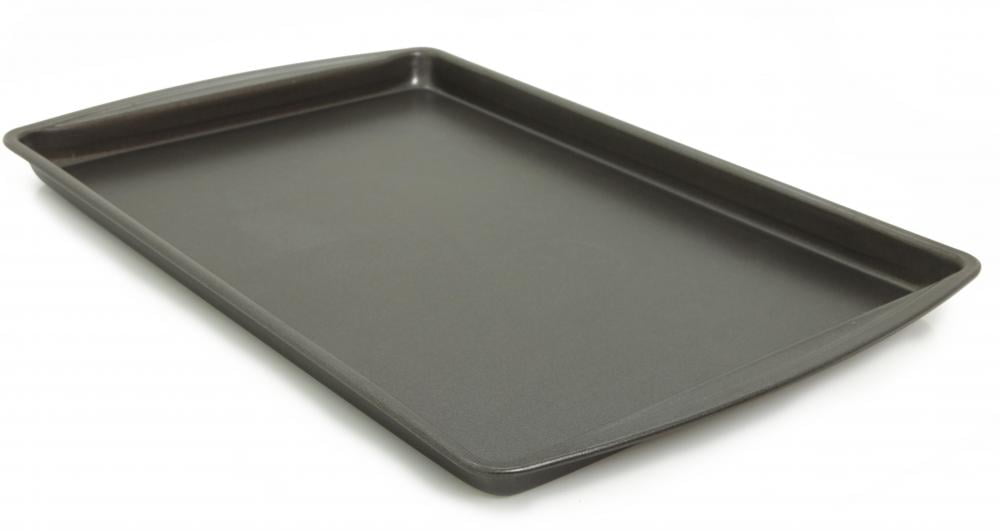
You’ll need a baking sheet or tray lined with parchment paper to place the coated oysters for chilling in the refrigerator. You would need to arrange all the oysters on the tray and let the refrigerator set the coating better.
4. Large Skillet or Dutch Oven
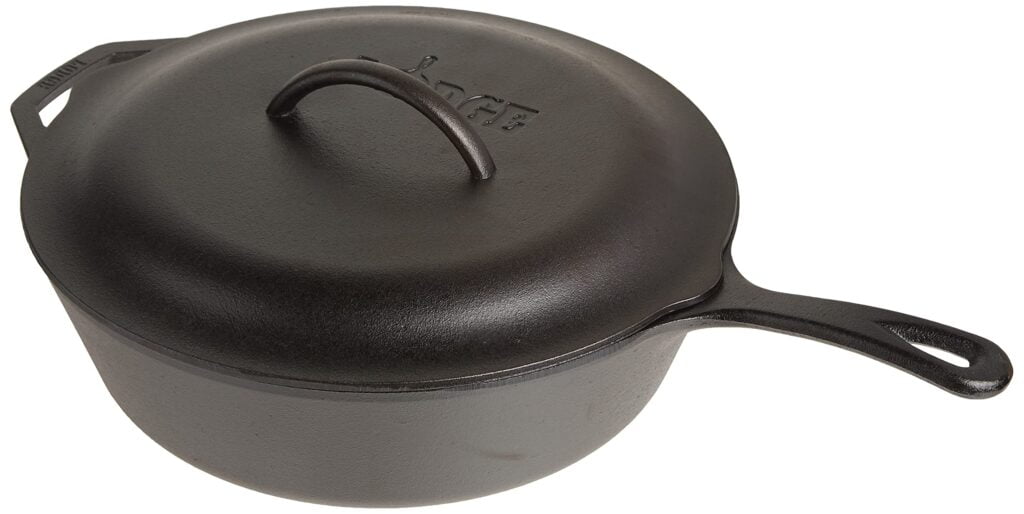
To fry the oysters, use a large skillet or Dutch oven with deep sides. The high sides will help prevent oil splatters and provide enough space to fry multiple oysters. It ensures proper cooking as well as your safety.m
5. Slotted Spoon or Tongs
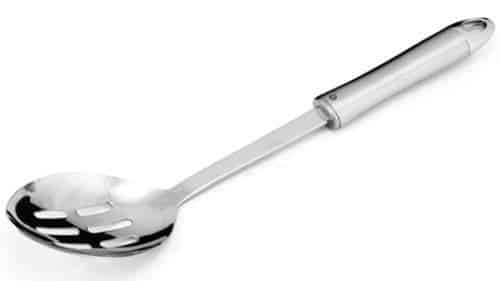
You’ll need a slotted spoon or tongs to carefully remove the fried oysters from the hot oil. This tool allows excess oil to drain back into the skillet, preventing the oysters from becoming greasy.
6. Thermometer
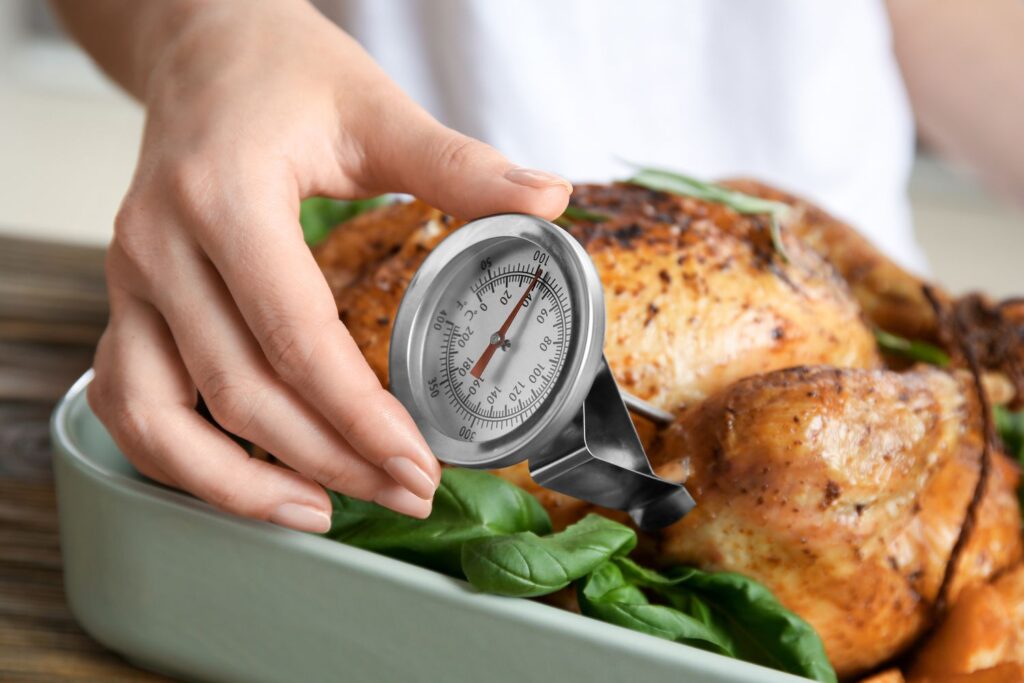
To achieve the perfect frying temperature, use a kitchen thermometer to monitor the oil. The ideal frying temperature for the oil should be around 350°F (175°C). Accurate temperature is important for the correct crispness and to avoid overlooking or undercooking.
7. Paper Towels
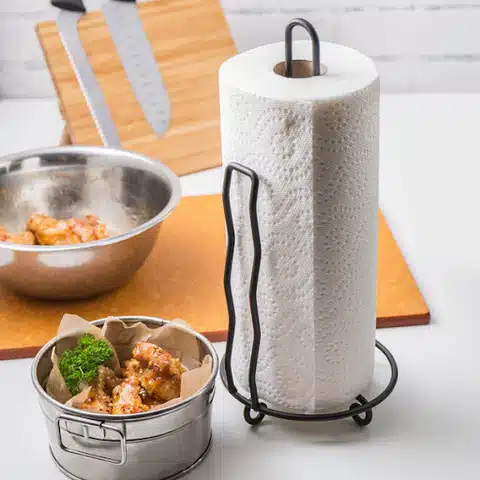
Have a few layers of paper towels ready on a plate to drain the excess oil from the fried oysters. Paper towels will remove the excess oil without compromising the crispiness of the fried oysters,
8. Safety Gloves (Optional)
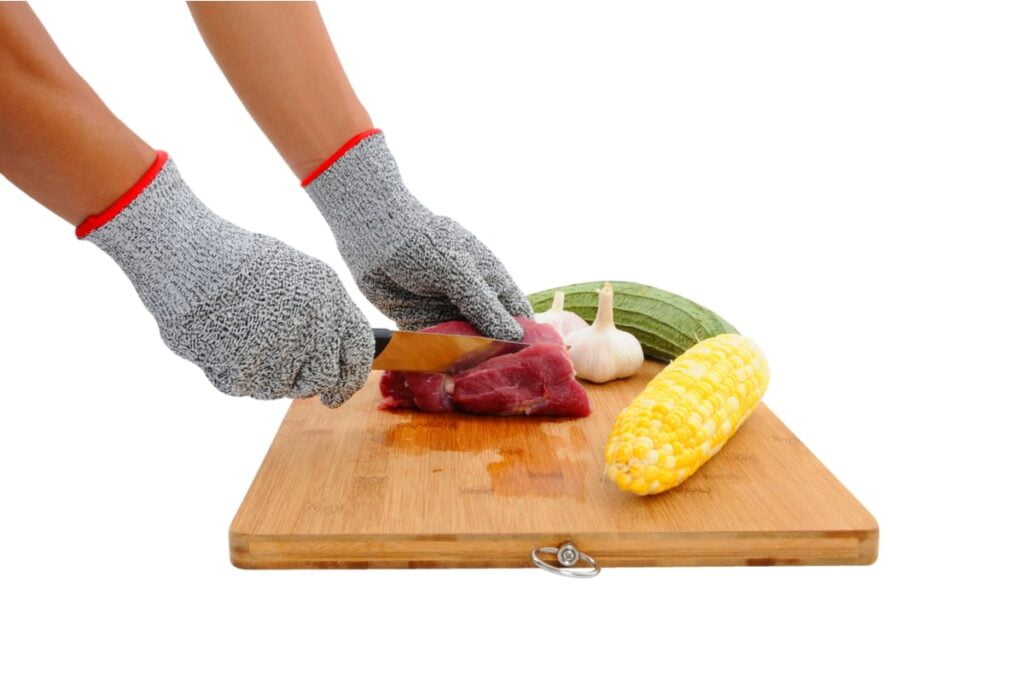
If you prefer, you can use heat-resistant safety gloves when handling the oysters during the frying process. The gloves will keep you safe from the oil splatters during frying and the transfer of oysters from the skillet to the baking tray.
The Recipe for Excellent Fried Oysters
Indulge in the irresistible delight of homemade crispy Southern fried oysters. This classic coastal recipe brings the ocean’s flavors to your plate, featuring plump oysters coated in a golden, crunchy crust. With a few simple steps, you can create this amazing treat.
Step 1: Preparing the Oysters
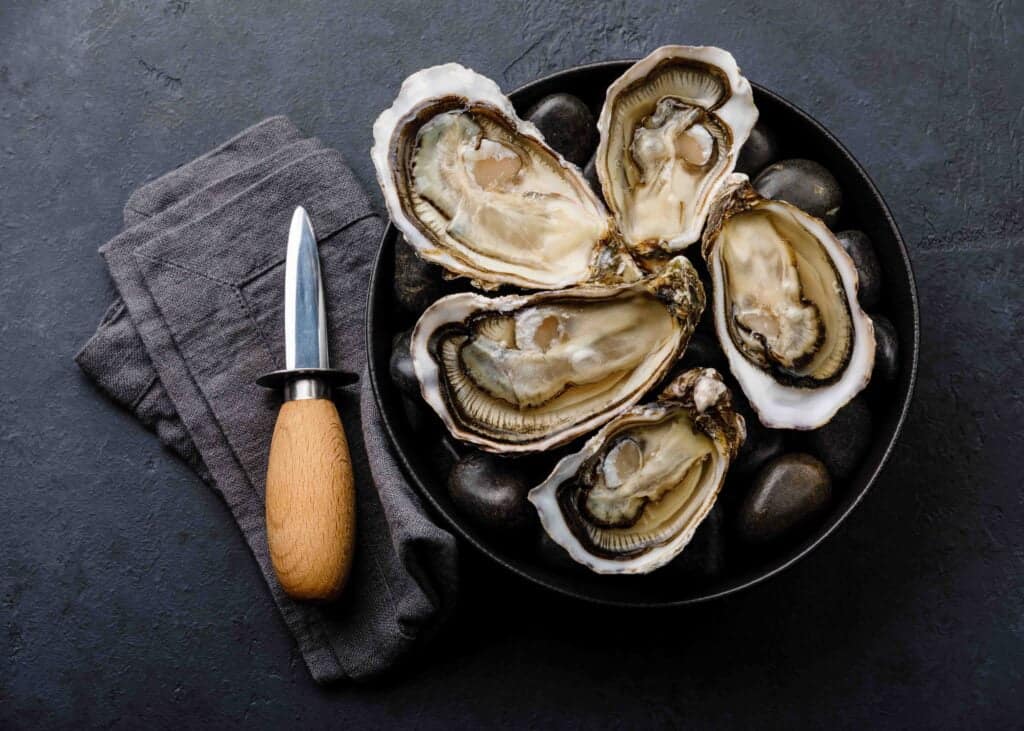
Start by shucking the fresh oysters carefully removing them from their shells. Use an oyster knife and follow proper shucking guidelines to ensure safety.
Step 2: Marinating the Oysters
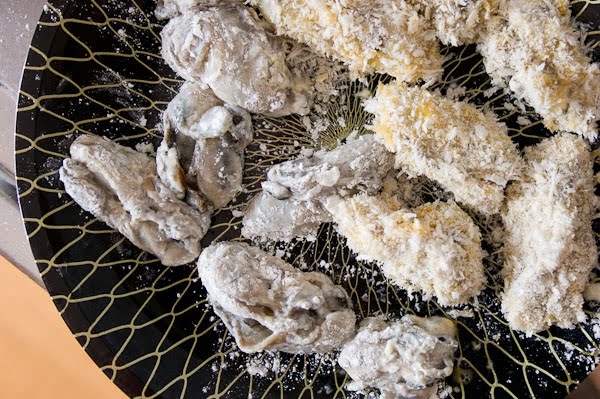
In a shallow bowl, combine the buttermilk (or whole milk) with hot sauce (if needed)—season with a pinch of salt and black pepper. Place the shucked oysters in the buttermilk mixture, ensuring they are fully coated. Allow the oysters to marinate for at least 30 minutes. This step tenderizes the oysters and adds a subtle tanginess to complement the crispy coating, making the perfect fried oysters.
Step 3: Preparing the Coating
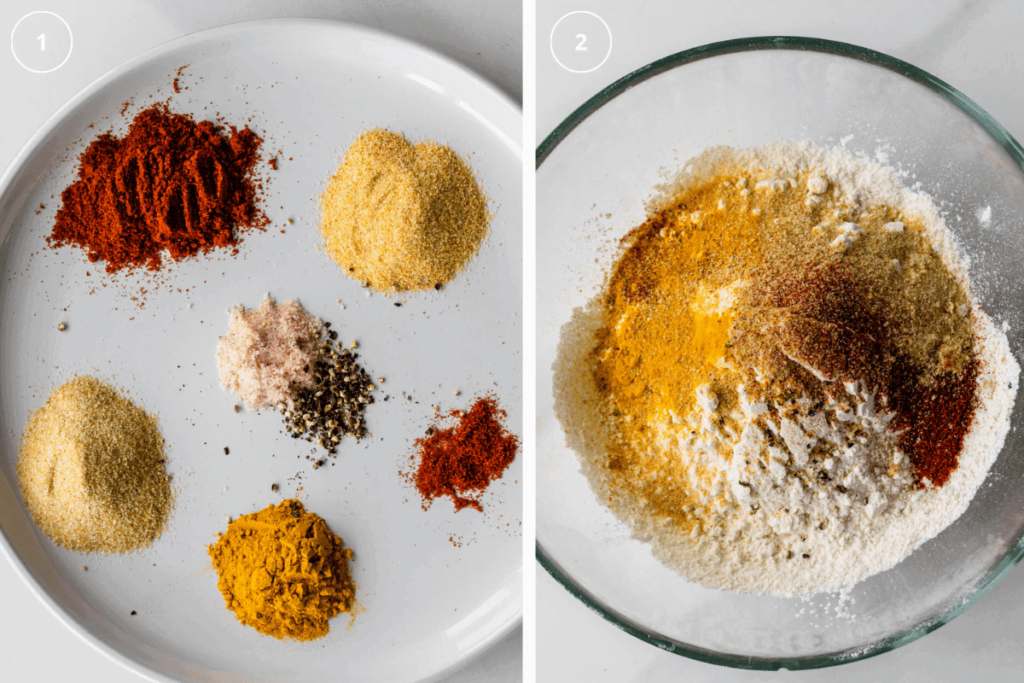
Combine the all-purpose flour, cornmeal paprika, garlic powder, onion powder, cayenne pepper, salt, and black pepper in a separate mixing bowl. Mix the dry ingredients thoroughly to create a well-seasoned coating.
Step 4: Coating the Oysters
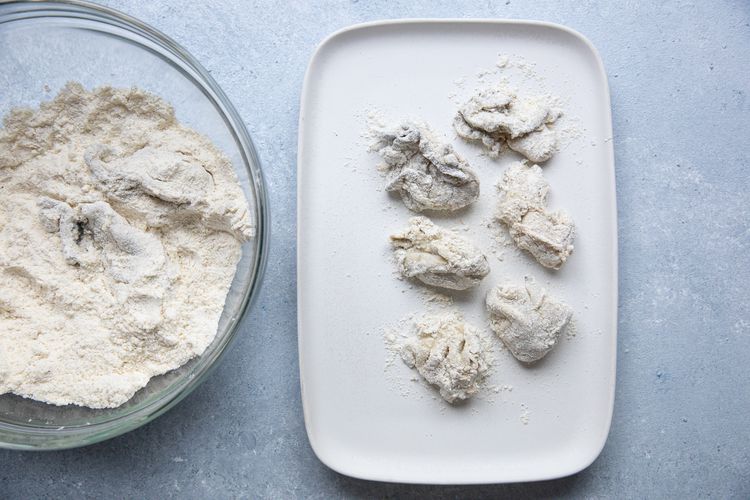
Remove the marinated oysters from the buttermilk, allowing any excess liquid to drip off. Dredge each oyster in the seasoned coating mixture, pressing gently to ensure a thick and even coating on all sides.
Step 5: Chilling the Coated Oysters
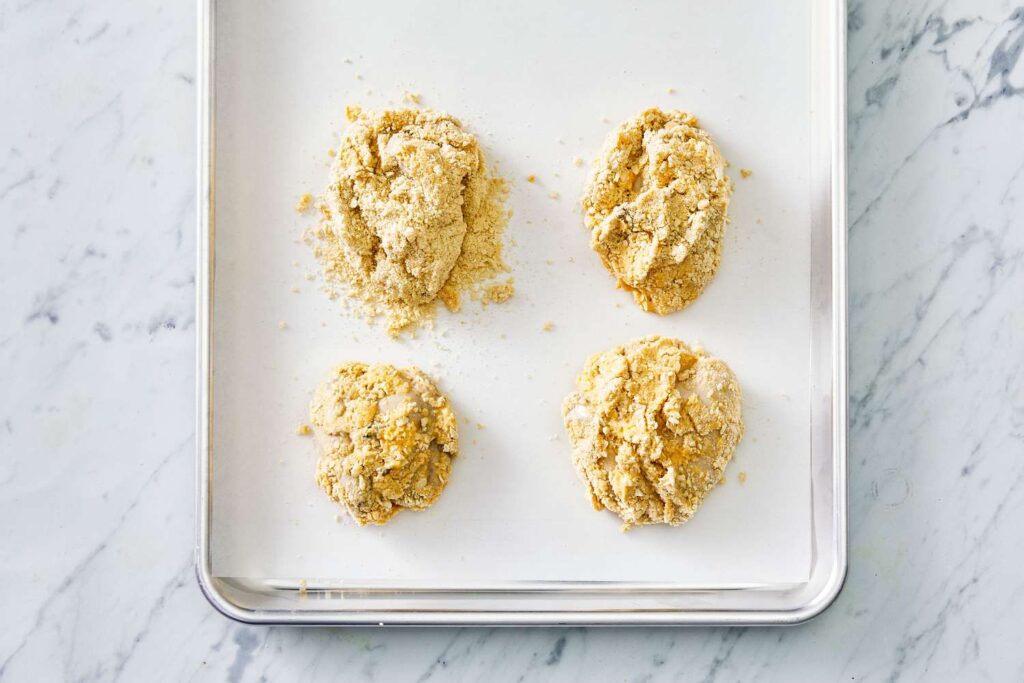
Place the coated oysters on a baking sheet or tray lined with parchment paper. Chill the oysters in the refrigerator for at least 15-20 minutes. Chilling helps the coating adhere better during frying, resulting in a crispier texture of the fried oysters.
Step 6: Frying the Oysters
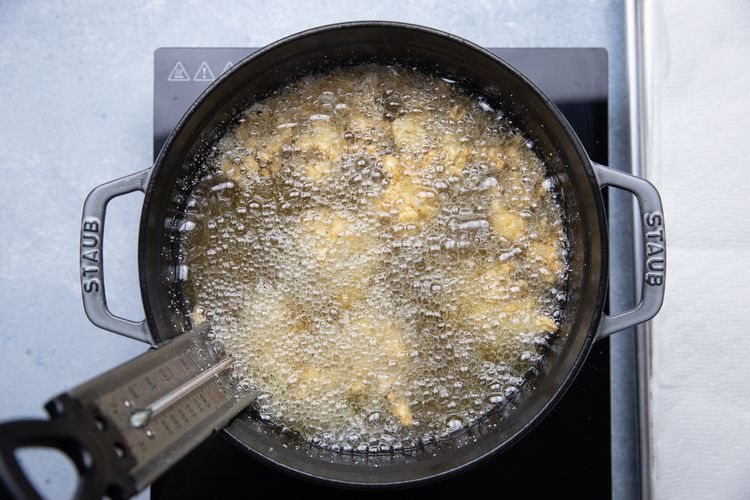
In a large, deep skillet or Dutch oven, pour vegetable oil to a depth of about 2 inches. Heat the oil over medium-high heat until it reaches approximately 350°F (175°C) on a kitchen thermometer. Carefully add a few coated oysters to the hot oil, ensuring not to overcrowd the skillet. Fry the oysters for 1-2 minutes per side or until the coating turns golden brown and crispy.
Step 7: Draining and Serving
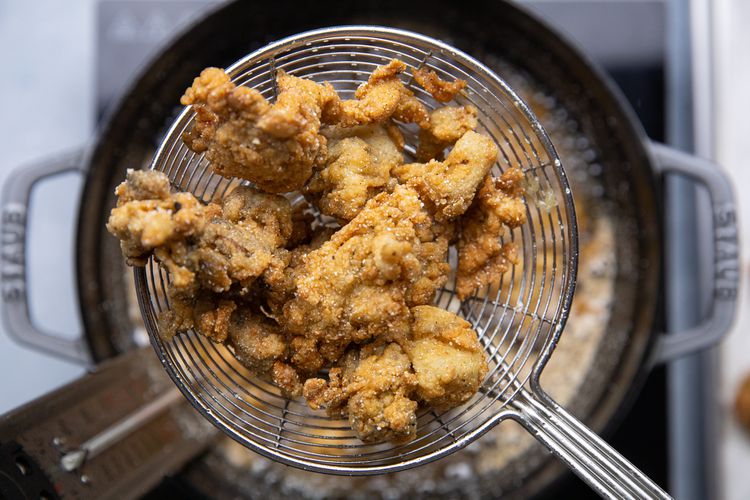
Using a slotted spoon or tongs, remove the fried oysters from the oil and place them on a plate lined with paper towels. The paper towels will absorb excess oil and help maintain the crispy texture.
Step 8: Garnishing and Serving
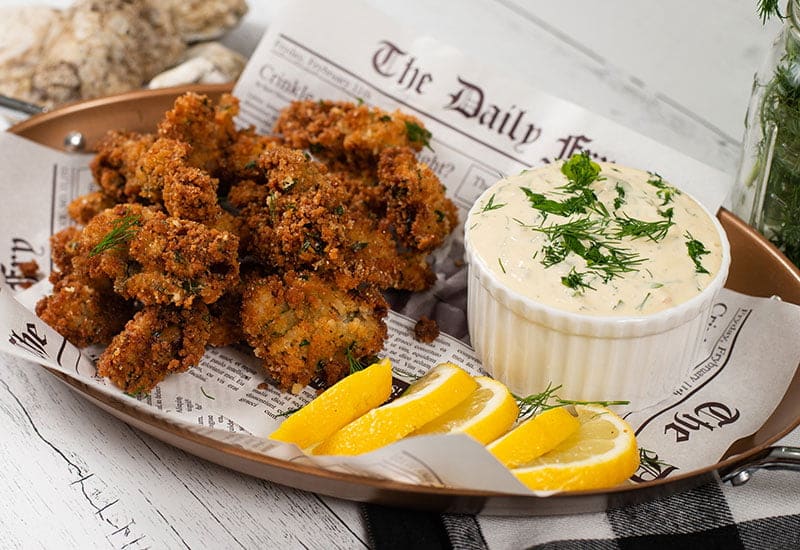
Arrange the Homemade Crispy Southern Fried Oysters on a serving platter. Garnish with chopped fresh parsley and lemon wedges for a burst of freshness. Serve the fried oysters hot, and enjoy them with tartar sauce, cocktail sauce, or your favorite dipping sauce.
Tips for Best Fried Oysters
Here are some useful tips for you to use to make the best-fried oysters.
- Purchase fresh oysters from a reputable seafood market or fishmonger. Look for plump oysters with a salty aroma, and avoid any with an off-putting smell.
- If you’re shucking the oysters yourself, do so safely. Use a proper knife and follow the guidelines.
- Ensure the shucked oysters are well-drained and patted dry before marinating in buttermilk. Excess liquid may cause the coating to become soggy during frying.
- Marinating the oysters for at least 30 minutes allows the buttermilk to impart its tangy flavor and helps tenderize the oysters.
- The coating mixture should be well-seasoned to enhance the flavor of the oysters. Adjust the amount of cayenne pepper for the desired level of spiciness.
- Chilling the coated oysters in the refrigerator before frying helps the coating adhere better and results in a crispier
Calorie Count
Fried oysters offer a delectable indulgence, but it’s essential to be mindful of their calorific and nutritional value. On average, a serving of six medium-sized fried oysters can provide approximately 200 to 300 calories. Alongside the satisfying crunch of the golden coating, each serving delivers about 10-15 grams of protein, making them a decent source of this essential nutrient. However, frying the oysters adds fat, contributing around 10-15 grams per serving.
Additionally, a serving may contain 15-20 grams of carbohydrates and 1-2 grams of fiber. While oysters are rich in iron (10-15% of the daily recommended intake) and calcium (4-6% of the daily recommended intake), the frying process can add 50-70 milligrams of cholesterol and 300-400 milligrams of sodium to each serving.
To enjoy these coastal delicacies responsibly, consider using heart-healthy oils for frying and balancing your meal with nutrient-dense sides for a well-rounded culinary experience.
Conclusion
The Homemade Crispy Southern Fried Oysters recipe offers a delightful culinary adventure, bringing the flavors of the coast to your plate. With a simple yet precise process, you can create mouthwatering oysters with a perfect balance of tenderness and crunch. The blend of tangy buttermilk marination and well-seasoned coating ensures a burst of flavor with each bite.
Whether served as an appetizer, part of a seafood feast, or a main course, these crispy fried oysters will impress and leave everyone craving more. Follow the step-by-step guide, and savor the irresistible pleasure of these coastal gems from the comfort of your kitchen. Happy frying and indulging in the coastal delight!
Frequently Asked Questions
Can I Use Frozen Oysters for this Recipe?
Fresh oysters are recommended for the best results. While you can use frozen oysters, they might retain excess moisture and affect the crispiness of the coating.
What Type of Oil Should I Use for Frying?
Opt for a high smoke point, neutral-flavored oil like canola or peanut oil. These oils are ideal for frying as they won’t impart strong flavors to the oysters.
Can I Prepare the Oysters in Advance?
While it’s best to fry the oysters immediately after coating, you can marinate them in the buttermilk mixture a few hours ahead. Keep the coated oysters in the refrigerator until ready to fry.
Can I Make the Coating Mixture Gluten-Free?
You can use gluten-free all-purpose flour and cornmeal to make the coating gluten-free. Ensure that all the ingredients used are certified gluten-free.
What’s the Best Way to Shuck Oysters Safely?
Shucking oysters can be challenging. Using an oyster knife and wearing a cut-resistant glove to protect your hands is essential. Watch tutorials or seek guidance from professionals if you’re new to shucking.

